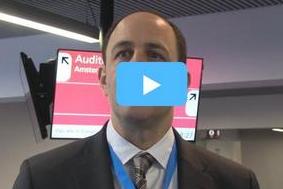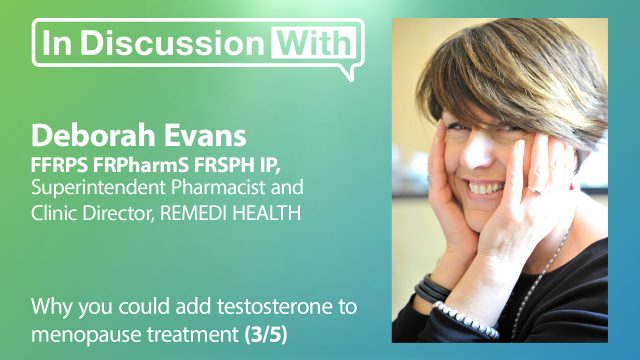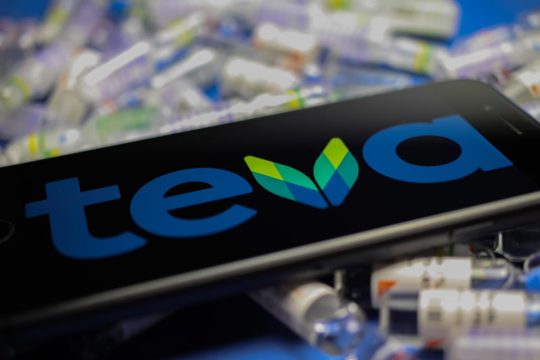Advertisment
ECCO 2016: Professor David Rubin from Chicago discusses the challenges of UC management and optimising biological therapy

Management of ulcerative colitis: putting patients at the centre – by Maria Dalby
Iris Dotan (Tel Aviv Sourasky Medical Centre, Israel), Peter Irving (Guy’s and St Thomas’ NHS Foundation Trust, London, UK) and David Rubin (The University of Chicago Medicine, Illinois, USA)
Ulcerative colitis (UC) treatment is undergoing a paradigm shift at the moment. Healthcare providers are increasingly recognising that the traditional pyramid-shaped or stepwise model of managing patients where patients need to fail – in other words, potentially come to harm – before gaining access to the next step does not lend itself to treatment optimisation using the latest therapies. In a symposium sponsored chaired by Dr Iris Dotan from Tel Aviv, Dr Peter Irving from London and Professor David Rubin from Chicago discussed the challenges of UC management and optimising biological therapy.
Peter Irving set the scene by reminding the audience that UC is a progressive disease and that a large proportion of patients will have an unfavourable disease course.1 Despite the availability of new effective treatments including biological therapies, many patients continue to have ongoing problems. Around half of patients will experience a relapse during the first year after diagnosis, and only one patient in four are able to maintain remission for 3-7 years after diagnosis.2 UC symptoms disrupt patients’ lives and cause them to stay at home, miss work, avoid socialising and take less exercise.3 Survey data shows that physicians, in their zeal to prevent long-term complications of UC, have a tendency to underestimate the impact UC has on patients’ lives in the short term.4
Currently available treatment options for active UC include steroids, thiopurines and biological anti-TNF and anti-integrin therapy. Steroids are highly effective for inducing remission but are inappropriate as maintenance therapy due to their significant side effects.5 Thiopurines, on the other hand, are too slow to take effect to work as induction agents but have been shown to be effective for maintaining remission.6 Studies documenting anti-TNF therapy in UC have shown consistently that the clinical efficacy of these agents is limited. In the UK SUCCESS trial, combination therapy with infliximab and azathioprine was superior to either agent as monotherapy, yet 60% of patients failed to achieve steroid-free remission at week 16 (primary endpoint).7 Similar low remission rates have been reported for golimumab8, 9 and adalimumab, especially in patients who have failed to respond to previous anti-TNF therapy.10 Add to this the significant risk of severe long-term side effects: a 50% higher risk of serious infections with steroid therapy,11 a 4-fold increase in the risk of lymphoma with azathioprine,12 and significantly higher risk of opportunistic infection with anti-TNF therapy,13 and it is easy to see that there remains a substantial unmet need in UC treatment.
Treatment beyond symptom control is essential due to the progressive nature of UC and the long-term risk of developing colorectal cancer. Long-term follow-up data show that patients who achieve a complete clinical response within the first 3 months of treatment are significantly more likely to avoid a colectomy in the longer term than those with no or only partial response.14 Similarly, patients who achieve mucosal healing are less likely to have a colectomy than those who do not.15 Dr Irving proposed that mucosal inflammation should be a target in UC management, potentially with patients self-monitoring their disease using faecal calprotectin assays.
In his talk Professor David Rubin challenged the step-wise approach to UC treatment and instead advocated a treat-to-target approach where induction therapy is individualised based on a thorough pre-treatment assessment that takes account of risk factors for poor response such as low serum albumin, severe endoscopic lesions or prolonged disease duration, and then optimised and adjusted based on continued monitoring during the maintenance phase to maintain remission and avoid drift. Appropriate targets in UC are patient-reported resolution of rectal bleeding and diarrhoea together with endoscopic remission (Mayo subscores of 0 or 1), as outlined in the STRIDE consensus document.16 Lack or loss of response to anti-TNF therapy is a particular challenge in optimising therapy and therapeutic drug monitoring should be employed to determine whether the treatment failure is mechanistic in nature or related to exposure (eg loss of protein in stool).17 Switching to a biological with another mechanism should be considered for patients who remain uncontrolled despite high anti-TNF levels.18
Vedolizumab is an α4 integrin blocker which acts by blocking tissue-tropic lymphocyte migration in the gut without affecting immune surveillance in the central nervous system.19, 20 Pivotal trial data shows that vedolizumab is effective for inducing a clinical response in 47% of patients at week 6, with a remission rate of 16.9% and 40.9% of patients achieving mucosal healing,21 and maintaining steroid-free remission for up to 3 years in both anti-TNF-naïve and anti-TNF failure patients.21-23 The post-marketing experience with vedolizumab is largely consistent with the clinical trial profile with response rates in excess of 40% at week 6.24-31 Recently published long-term safety data from 2,830 patients with a total of 4,811 patient-years of exposure shows that vedolizumab has a favourable safety profile with no cases of progressive multifocal leukoencephalopathy (PML) observed and a very low rate of malignancies.32 Concluding, Professor Rubin suggested that vedolizumab should be considered as either a first choice biologic or an alternative to reach therapeutic targets in patients who fail to respond or lose response to their initial anti-TNF therapy.
References
- Solberg IC, Lygren I, Jahnsen J, et al. Clinical course during the first 10 years of ulcerative colitis: results from a population-based inception cohort (IBSEN Study). Scand J Gastroenterol 2009;44:431-40.
- Langholz E, Munkholm P, Davidsen M, et al. Course of ulcerative colitis: analysis of changes in disease activity over years. Gastroenterology 1994;107:3-11.
- Loftus EV, Jr. A practical perspective on ulcerative colitis: patients’ needs from aminosalicylate therapies. Inflamm Bowel Dis 2006;12:1107-13.
- Rubin DT, Siegel CA, Kane SV, et al. Impact of ulcerative colitis from patients’ and physicians’ perspectives: Results from the UC: NORMAL survey. Inflamm Bowel Dis 2009;15:581-8.
- Dignass A, Lindsay JO, Sturm A, et al. Second European evidence-based consensus on the diagnosis and management of ulcerative colitis part 2: current management. J Crohns Colitis 2012;6:991-1030.
- Gisbert JP, Linares PM, McNicholl AG, et al. Meta-analysis: the efficacy of azathioprine and mercaptopurine in ulcerative colitis. Aliment Pharmacol Ther 2009;30:126-37.
- Panaccione R, Ghosh S, Middleton S, et al. Combination therapy with infliximab and azathioprine is superior to monotherapy with either agent in ulcerative colitis. Gastroenterology 2014;146:392-400 e3.
- Sandborn WJ, Feagan BG, Marano C, et al. Subcutaneous golimumab induces clinical response and remission in patients with moderate-to-severe ulcerative colitis. Gastroenterology 2014;146:85-95; quiz e14-5.
- Sandborn WJ, Feagan BG, Marano C, et al. Subcutaneous golimumab maintains clinical response in patients with moderate-to-severe ulcerative colitis. Gastroenterology 2014;146:96-109 e1.
- Sandborn WJ, van Assche G, Reinisch W, et al. Adalimumab induces and maintains clinical remission in patients with moderate-to-severe ulcerative colitis. Gastroenterology 2012;142:257-65 e1-3.
- Lichtenstein GR, Feagan BG, Cohen RD, et al. Serious infection and mortality in patients with Crohn’s disease: more than 5 years of follow-up in the TREAT registry. Am J Gastroenterol 2012;107:1409-22.
- Beaugerie L, Brousse N, Bouvier AM, et al. Lymphoproliferative disorders in patients receiving thiopurines for inflammatory bowel disease: a prospective observational cohort study. Lancet 2009;374:1617-25.
- Ford AC, Peyrin-Biroulet L. Opportunistic infections with anti-tumor necrosis factor-alpha therapy in inflammatory bowel disease: meta-analysis of randomized controlled trials. Am J Gastroenterol 2013;108:1268-76.
- Ardizzone S, Cassinotti A, Duca P, et al. Mucosal healing predicts late outcomes after the first course of corticosteroids for newly diagnosed ulcerative colitis. Clin Gastroenterol Hepatol 2011;9:483-489 e3.
- Froslie KF, Jahnsen J, Moum BA, et al. Mucosal healing in inflammatory bowel disease: results from a Norwegian population-based cohort. Gastroenterology 2007;133:412-22.
- Peyrin-Biroulet L, Sandborn W, Sands BE, et al. Selecting Therapeutic Targets in Inflammatory Bowel Disease (STRIDE): Determining Therapeutic Goals for Treat-to-Target. Am J Gastroenterol 2015;110:1324-38.
- Brandse JF, van den Brink GR, Wildenberg ME, et al. Loss of Infliximab Into Feces Is Associated With Lack of Response to Therapy in Patients With Severe Ulcerative Colitis. Gastroenterology 2015;149:350-5 e2.
- Colombel JF, Feagan BG, Sandborn WJ, et al. Therapeutic drug monitoring of biologics for inflammatory bowel disease. Inflamm Bowel Dis 2012;18:349-58.
- von Andrian UH, Engelhardt B. Alpha4 integrins as therapeutic targets in autoimmune disease. N Engl J Med 2003;348:68-72.
- von Andrian UH, Mackay CR. T-cell function and migration. Two sides of the same coin. N Engl J Med 2000;343:1020-34.
- Feagan BG, Rutgeerts P, Sands BE, et al. Vedolizumab as induction and maintenance therapy for ulcerative colitis. N Engl J Med 2013;369:699-710.
- Feagan B, Kaser A, Smyth M, et al. Long-Term Efficacy of Vedolizumab Therapy for Patients With Ulcerative Colitis. Am J Gastroenterol 2014;109:S477.
- Feagan B, Kaser A, Smyth M, et al. OP206 LONG-TERM EFFICACY OF VEDOLIZUMAB THERAPY FOR ULCERATIVE COLITIS. United European Gastroenterology Journal 2014;2:A66-A67.
- Amiot A, Grimaud JC, Peyrin-Biroulet L, et al. Effectiveness and Safety of Vedolizumab Induction Therapy for Patients With Inflammatory Bowel Disease. Clin Gastroenterol Hepatol 2016.
- Christensen B, Goeppinger SR, Colman RJ, et al. Tu1350 Vedolizumab in the Treatment of IBD: The University of Chicago Experience. Gastroenterology 2015;148:S-866.
- Dulai PS, Singh S, Narula N, et al. Vedolizumab for Moderate to Severely Active Inflammatory Bowel Disease: A Multicenter U.S. Consortium. Am J Gastroenterol 2015;110:S809.
- Eriksson C, Almer S, Björk JA, et al. Tu1368 Vedolizumab in Inflammatory Bowel Disease, the First Experience From the Swedish IBD Registry (SWIBREG). Gastroenterology 2015;148:S-871.
- Morganstern B, Singh N, Targan S, et al. Sa1182 Single-Center Experience of Vedolizumab in Patients With Inflammatory Bowel Disease: Does Age Matter? Gastroenterology 2015;148:S-250.
- Oppenheim S, Wasan SK, Noronha A, et al. Tu1371 A Retrospective Review of Response Rates and Risk of Complications Among Inflammatory Bowel Diseases Patients Treated With Vedolizumab. Gastroenterology 2015;148:S-872.
- Shelton E, Allegretti JR, Stevens B, et al. Efficacy of Vedolizumab as Induction Therapy in Refractory IBD Patients: A Multicenter Cohort. Inflamm Bowel Dis 2015;21:2879-85.
- Vivio E, Kanuri ND, Dey N, et al. Tu1369 Vedolizumab Efficacy and Safety in a Tertiary Care IBD Clinical Practice. Gastroenterology 2015;148:S-871-S-872.
- Colombel JF, Sands BE, Rutgeerts P, et al. The safety of vedolizumab for ulcerative colitis and Crohn’s disease. Gut 2016.





